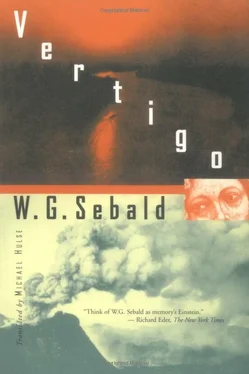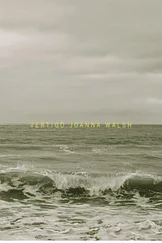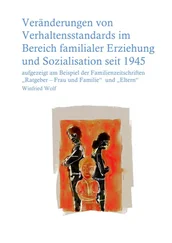Winfried Sebald - Vertigo
Здесь есть возможность читать онлайн «Winfried Sebald - Vertigo» весь текст электронной книги совершенно бесплатно (целиком полную версию без сокращений). В некоторых случаях можно слушать аудио, скачать через торрент в формате fb2 и присутствует краткое содержание. Год выпуска: 2001, ISBN: 2001, Издательство: New Directions, Жанр: Современная проза, на английском языке. Описание произведения, (предисловие) а так же отзывы посетителей доступны на портале библиотеки ЛибКат.
- Название:Vertigo
- Автор:
- Издательство:New Directions
- Жанр:
- Год:2001
- ISBN:978-0811214858
- Рейтинг книги:4 / 5. Голосов: 1
-
Избранное:Добавить в избранное
- Отзывы:
-
Ваша оценка:
- 80
- 1
- 2
- 3
- 4
- 5
Vertigo: краткое содержание, описание и аннотация
Предлагаем к чтению аннотацию, описание, краткое содержание или предисловие (зависит от того, что написал сам автор книги «Vertigo»). Если вы не нашли необходимую информацию о книге — напишите в комментариях, мы постараемся отыскать её.
Vertigo
The Emigrants
The Rings of Saturn
The New York Times Book Review
The Emigrants
Vertigo — читать онлайн бесплатно полную книгу (весь текст) целиком
Ниже представлен текст книги, разбитый по страницам. Система сохранения места последней прочитанной страницы, позволяет с удобством читать онлайн бесплатно книгу «Vertigo», без необходимости каждый раз заново искать на чём Вы остановились. Поставьте закладку, и сможете в любой момент перейти на страницу, на которой закончили чтение.
Интервал:
Закладка:
On the following morning, the light still burning in the kitchen, my grandfather came in from clearing paths and told us that word had just reached him from Jungholz that Schlag the hunter had been found dead a good hour's walk beyond his hunting ground, on the Tyrolean side of the border, at the bottom of a ravine. He had evidently fallen while crossing by the narrow footbridge which was dangerous even in summer, and as good as impassable in winter, said my grandfather, waiting as he did every day till my mother was not watching to pour down the sink the milky coffee which was always kept for him on the hotplate of the range. In my grandfather's opinion it was out of the question that Schlag, who must have known his own territory like the back of his hand, should have ended up on the other side purely by mistake. By the same token, nobody knew what the hunter, if he had deliberately gone out of his way, had been doing there, over the Austrian border, at this time of year of all times and with the weather closing in. Whichever way you looked at it, concluded my grandfather, it was a queer and perplexing business. I, for my part, was not able to get the matter out of my mind all day long. When I was at my schoolwork, all I had to do was lower my eyelids a little and I beheld Schlag the hunter lying dead at the bottom of the ravine. And so it was no surprise to me when, at midday, I came upon him on my way home from school. I had heard the jingling of a horse's harness for some time before, out of the grey air and the gently swirling snow, a woodcutters' sledge drawn by the heavy bay belonging to the proprietor of the sawmill, appeared, bearing upon it what was plainly the body of a man under a wine-coloured horse blanket. The sledge, led by the saw-mill proprietor and accompanied by the Jungholz gendarme, halted at the crossroads at the very moment when Dr Piazolo approached, as if by prearrangement, ploughing through the knee-deep snow astride his Ztindapp. Dr Piazolo, who had evidently already been informed of the tragedy that had occurred, switched the engine off and walked over to the sledge. He drew the blanket down halfway, and beneath it, in what one might say was a peculiarly relaxed posture, there indeed lay the body of the hunter Hans Schlag from KoEgarten on the Neckar. His grey-green attire was hardly disturbed, quite as though nothing had happened. One might have supposed that Schlag had simply fallen asleep, had it not been for the dreadful pallor of his face and the wild hair and beard, streaked with frost and hard as ice. Dr Piazolo had taken off his black motorcycle gloves and, with a cautiousness uncharacteristic in him, was feeling different parts of the body, gone rigid with the cold and rigor mortis, which had set in some time ago. He voiced a suspicion that the hunter, who did not seem to have been injured, had to all appearances initially survived the fall from the footbridge. It was quite possible, he said, that the hunter had lost consciousness through sheer fright at the moment when he slipped, and that his fall had been broken by the saplings growing in the ravine. Death probably did not occur until some time afterwards, as a result of exposure. The gendarme, who had followed Dr Piazolo's conjectures and concurred with them, now reported for his part that the unfortunate Waldmann, who now lay as stiff as a poker at the feet of the hunter, had in point of fact still been alive when the tragedy was discovered. In his opinion, the gendarme said, the hunter had put the dachshund in his rucksack before crossing the bridge, and the rucksack had somehow been dislodged during the fall, for it was found a short distance away, with a trail leading from it across to Schlag, by whose side the dachshund had dug through the-snow into the forest floor, which was frozen only on the surface. Strangely enough, as soon as the hunter and his dog had been approached, Waldmann had suddenly gone raving mad, even though there was little more than a breath of life left in him, and he had to be shot there and then. Dr Piazolo bent down once more over the hunter, fascinated, it seemed, by the fact that the snowflakes lay on his face without melting. Then he carefully pulled the horse blanket up over the motionless figure, whereupon, triggered by God knows what slight touch or movement, the repeating watch in the hunter's waistcoat pocket played a bar or so of the song "Ob immer Treu und Redlichkeit". The men looked at each other with expressions of bewilderment. Dr Piazolo shook his head and climbed onto his motorcycle. The sledge moved on and, still unobserved, I slowly walked the rest of my way home. I have since learned that an autopsy was carried out on the body of Schlag the hunter, who apparently had no relatives of any sort, at the district hospital; it did not, however, yield any further insight beyond the cause of death already established by Dr Piazolo, except for the fact, described in the post-mortem report as curious, that a sailing ship was tattooed on the left upper arm of the dead man.
Shortly before Christmas, a few days after the encounter with the dead hunter, I succumbed to a grave illness which Dr Piazolo and a physician from the nearest town, whom he consulted, diagnosed as diphtheria. Confined to my bed, I lay there, my throat becoming increasingly sore until at length it felt raw and torn open inside and I was fearfully convulsed every few minutes by a cough that racked my chest and my whole body. My limbs, once the illness had me in its grip, seemed so heavy to me that I could no longer raise either my head or my legs or arms, indeed not even my hands. Deep within my body I felt an immense pressure, as if my organs were being put through a mangle.
Again and again I saw before me the village blacksmith with his tongs pulling my heart, licked by blue flames like St Elmo's fire, out of the glowing embers and plunging it into a bucket of ice-cold water. The headache alone forced me sometimes to the limits of consciousness, but it was not until the illness reached its climax, when my temperature had risen to a fraction below the critical point, that delirium saved me from the worst extremes of pain. As though in the middle of a desert I lay in a shimmer of heat, my lips cracked and grey and flaking and in my mouth the foul taste of the rotting skin in my throat. My grandfather dripped luke-warm water into my mouth, and I felt it slowly trickling down across the scorched patches inside my throat. Time and again, in my delirium, I saw myself gingerly stepping past Frau Sallaba, who sat weeping on the stairs that led down into the cellar, and there, in the furthermost, darkest corner, opening the door of the cupboard where preserved eggs were kept for winter months in a large earthenware crock. I put my hand and forearm through the chalky surface of the water almost to the bottom of the container, and to my horror I felt that what was stored in this pot was not eggs safely sequestered, each one of them, in its shell, but something soft, something that slipped through my fingers and which I instantly knew could only be eyeballs gouged from their sockets. Dr Piazolo, who at the onset of my illness had ordered my room to be turned into a quarantine ward which only my grandfather and mother were allowed to enter, had me swathed from head to toe in dampened warm sheets, which at first proved beneficial, but, because of the constriction, soon gave rise in me to panic and fear. Twice a day my mother had to wash the floor with vinegar water, and until dusk fell the windows of my sickward were kept wide open so that at times the snow drifted in almost as far as the middle of the room, and my grandfather would sit by my bed in his overcoat with his hat on his head. The illness ran its course over two weeks, until after Christmas, even when Epiphany had come round I could scarcely eat anything other than spoonfuls of bread and milk. The door to the quarantine ward was now left ajar, and some of those who lived and worked in our house took turns to put in an appearance at the threshold, including Romana a couple of times, gaping at this boy who, by dint of a miracle, had just escaped with his life. It was already Lent before I was allowed to go into the garden occasionally. For the time being, a return to school was ruled out. In the spring, for two hours a day, I was placed in the care of my teacher, Fràulein Rauch. Fràulein Rauch was the daughter of the chief forester, so every afternoon I went across to the shingled villa which stood in a small arboretum and was both the forestry commission's district office and the chief forester's home. There, when the weather was cold, I would sit with my teacher on the bench by the stove and on sunny days outside in the revolving summer-house under the trees, completely devoted to the tasks I was set, filling my exercise books with a web of lines and numbers in which I hoped to entangle Fràulein Rauch for ever.
Читать дальшеИнтервал:
Закладка:
Похожие книги на «Vertigo»
Представляем Вашему вниманию похожие книги на «Vertigo» списком для выбора. Мы отобрали схожую по названию и смыслу литературу в надежде предоставить читателям больше вариантов отыскать новые, интересные, ещё непрочитанные произведения.
Обсуждение, отзывы о книге «Vertigo» и просто собственные мнения читателей. Оставьте ваши комментарии, напишите, что Вы думаете о произведении, его смысле или главных героях. Укажите что конкретно понравилось, а что нет, и почему Вы так считаете.












